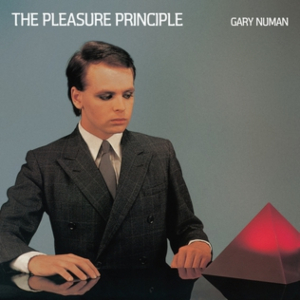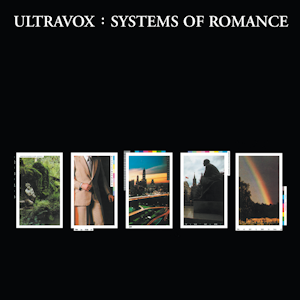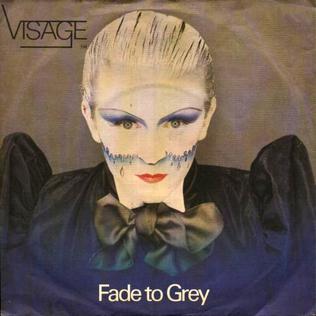
Tubeway Army were a London-based new wave band led by lead singer Gary Numan. Formed at the height of punk rock in 1977 the band gradually changed to an electronic sound. They were the first band of the electronic era to have a synthesiser-based number-one hit, with their single "Are 'Friends' Electric?" and its parent album Replicas both topping the UK charts in mid-1979. After its release, Numan opted to drop the Tubeway Army name and release music under his own name as he was the sole songwriter, producer and public face of the band, but he retained the musicians from Tubeway Army as his backing band.

Ultravox were a British new wave band, formed in London in April 1974 as Tiger Lily. Between 1980 and 1986, they scored seven Top Ten albums and seventeen Top 40 singles in the UK, the most successful of which was their 1981 hit "Vienna".

Christopher Thomas Allen, known professionally as Chris Cross, was an English musician, best known as the bass guitarist in the new wave band Ultravox. After starting his music career with Stoned Rose, a band in Preston, Lancashire, he was one of the founding members of the band Tiger Lily in 1973, before the band was renamed Ultravox three years later. The band's most successful single, "Vienna", was released in 1981.

Visage were a British synth-pop band formed in London in 1978. The band became closely linked to the burgeoning New Romantic fashion movement of the early 1980s, and are best known for their hit "Fade to Grey" which was released in late 1980. In the UK, the band achieved two Top 20 albums and five Top 30 singles before the commercial failure of their third album led to their breakup in 1985.

James "Midge" Ure is a Scottish musician, singer-songwriter and record producer. His stage name, Midge, is a phonetic reversal of Jim, a hypocorism of his given name. Ure enjoyed particular success in the 1970s and 1980s in bands including Slik, Thin Lizzy, Rich Kids, Visage, and as the second frontman of Ultravox. In 1984, he co-wrote and produced the charity single "Do They Know It's Christmas?", which has sold 3.7 million copies in the UK. The song is the second-highest-selling single in UK chart history. Ure co-organised Band Aid, Live Aid and Live 8 with Bob Geldof. He acts as a trustee for the charity and also serves as an ambassador for Save the Children.

"Vienna" is a song by British new wave band Ultravox, released on 9 January 1981 by Chrysalis Records as the third single and the title track from their fourth studio album of the same name. Featuring Midge Ure on lead vocals, the new wave ballad is regarded as a staple of the synth-pop genre that was popularised in the early 1980s and remains both the band's signature song and their most commercially successful release.

Ha! Ha! Ha! is the second album by British pop group Ultravox, at that time known as "Ultravox!", with an exclamation mark, as a nod to Neu!. Although the group would later achieve fame and commercial success with lead singer Midge Ure the band was, in 1977, led by singer/songwriter John Foxx who was accompanied by guitarist Stevie Shears, drummer Warren Cann, bassist Chris Cross and keyboard/violist Billy Currie.

The Pleasure Principle is the debut solo studio album by the English new wave musician Gary Numan, released on 7 September 1979 by Beggars Banquet Records. The album came about six months after Replicas (1979), his second and final studio album with the band Tubeway Army. The Pleasure Principle peaked at No. 1 on the UK Albums Chart.

Warren Reginald Cann is a Canadian drummer and songwriter. He was a founding member of the British new wave band Ultravox.

Systems of Romance, released on 8 September 1978, is the third album by British new wave band Ultravox. It was the final recording for the group with original lead singer, lyricist and co-composer John Foxx, and their first album without guitarist Stevie Shears, who had left the band. Shears was replaced by Robin Simon, making his first and only appearance on an Ultravox album. Though not a commercial success, Systems of Romance had a significant influence on the electropop music that came after it.

Beat Boy is the third studio album by the British synth-pop band Visage. It was recorded at Trident Studios between 1982 and 1983 and released on Polydor Records in October 1984. Reaching No. 79 on the UK album chart, the album was poorly received by critics and would be the band's last studio album for almost thirty years.

The Anvil is the second studio album by the British synth-pop band Visage, released in March 1982 by Polydor Records. The album reached No. 6 in the UK and was certified "Silver" by the British Phonographic Industry in April 1982.

"Fade to Grey" is a song by British synth-pop band Visage, released in November 1980 as the second single from their debut album, Visage (1980), on Polydor Records.

"Pleasure Boys" is a song by the British synth-pop group Visage, released as a single on Polydor Records in October 1982.

U-Vox is the eighth studio album by British new wave band Ultravox, released on 13 October 1986 by Chrysalis Records. It was the band's fifth album during the Midge Ure era, and the final one featuring the band's 1979 lineup, with the exception of Warren Cann, for nearly 26 years. The Ure-era lineup would eventually reform in 2008. It was also the last Ultravox album to reach the top 10 of the UK Albums Chart, peaking at number nine.

Extended Ultravox is an Ultravox compilation of 12" extended versions of various Ultravox singles from the years 1980–1986. The album was released in 1998.

Turbulence is the third studio album by Yes guitarist Steve Howe, released in 1991 through Relativity Records. It is Howe's first solo release since 1979, with his band including former Yes drummer Bill Bruford and former Ultravox keyboardist Billy Currie. The album is composed of guitar-based instrumentals, showcasing different genres that have influenced Howe. "Sensitive Chaos" contains a melody that would also be used in "I Would Have Waited Forever", the opening track to Yes' 1991 album Union. "The Inner Battle" contains a melody that would also be used in "Silent Talking" off the same Yes album.
Robin Simon is a British guitarist who was a member of Ultravox, Magazine and Visage.

Brilliant is the eleventh and final studio album by British synth-pop band Ultravox, released on 25 May 2012 by Chrysalis Records. It is the group's first studio album in 18 years, and the first in 28 years from the "classic" Ultravox line-up consisting of Midge Ure, Billy Currie, Warren Cann and Chris Cross. The title track was released as its lead single, and premiered on 17 April 2012 on BBC Radio 2.

If I Was: The Very Best of Midge Ure & Ultravox is a 1993 compilation album by Scottish musician Midge Ure, featuring songs from his solo career and as part of the new wave and synthpop band Ultravox, along with Ure's collaborations with Mick Karn, Phil Lynott, Visage, and charity supergroup Band Aid.



















